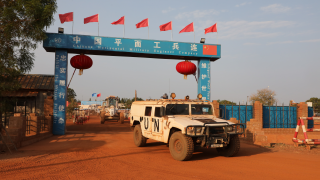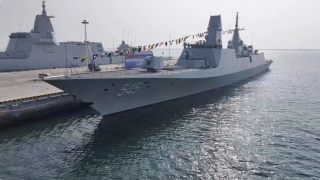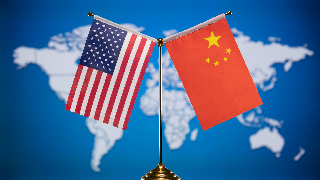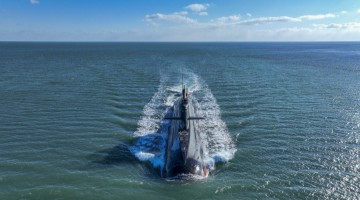Philippine President Ferdinand Marcos Jr directly felt the backlash from his government's provocative moves in the South China Sea at the Shangri-La Dialogue in Singapore on the weekend.
In the question-and-answer session after his keynote address at the security forum on Friday, the great lengths Marcos went to in a bid to prevaricate on questions raised by the People's Liberation Army representatives regarding the nature of the South China Sea issue and the ugly role Manila is playing in stoking tensions in the waters vividly displayed the Philippine leader's guilty conscience.
In his speech, Marcos tried his best to portray the Philippines as a country upholding the rule of law in the face of China's "bullying, intimidation and threats".
In saying that the Philippines' policy in the South China Sea is built upon the "two touchstones" of the 1982 United Nations Convention on the Law of the Sea and the 2016 Arbitral Award, which he said provide a solid foundation for the peaceful resolution and management of disputes, Marcos laid bare the fact that the real touchstone for Manila is to convince itself that black is white to justify its actions.
If Manila really complied with the UNCLOS, which has clear definitions on the legal status of the territorial sea and islands, navigation freedom and the maritime dispute settlements, it would not be trying to make Chinese islands and waters its own, or taking "freedom of navigation" as an excuse to provoke China, or looking to the United States to support its territory grabbing efforts.
Calling for the Association of Southeast Asian Nations' centrality to be upheld is only an excuse for Manila to cover up its intention of letting the US dictate regional affairs so it can steal from China.
Submitting the South China Sea island and reef disputes to the so-called International Arbitration Tribunal violated the relevant provisions of Article 4 of the Declaration on the Conduct of Parties in the South China Sea and infringed on the rights that China should enjoy as a party to the UNCLOS. The so-called tribunal and its arbitration also violated international law and relevant rules.
China has always believed that international rules are not the "gang rules" imposed by a small clique of countries, but laws and regulations that reflect the interests and reasonable demands of the international community as a whole. China is an active participant, firm defender and model follower of these rules.
Marcos' speech shows that it is the Philippines and the US which are violating and undermining the rules, and which are flip-flopping right and wrong so they can smear and impugn Beijing's justified responses to their antics.
China also believes that all countries are equal, regardless of their size, wealth or strength. However, it has its bottom line and principles, and it will never condone the Philippines' claim jumping.
Reportedly, Manila is mulling over grounding ships on more Chinese islands and reefs under its control just as it did with China's Ren'ai Reef in 1999 in a bid to create a fait accompli to the world that these islands belong to the Philippines.
That move, if taken, will further escalate regional tensions and risk tensions in the South China Sea spiraling out of control. The South China Sea issue is to a large extent a fabrication of the US, which is seeking to sow seeds of discord to create turbulence in the neighborhood development environment for China. All regional countries should draw lessons from the ongoing crises in the Middle East and Ukraine, and be wary of Manila's willingness to act as a proxy of the US.









